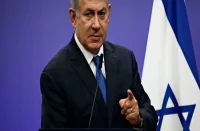Russia’s military operation in Ukraine has unexpectedly revealed a rift of historic proportions in the Americas. Countries in Latin America are shaking off the White House’s influence and gaining political autonomy. How is it that Washington has lost its own “backyard”, which, until recently, had obeyed it unquestioningly?
At first glance, it seems to Russia that the balance of power in the UN General Assembly is weak: 141 states voted in favour of the resolution condemning the actions of the Russian Armed Forces in Ukraine, 35 abstained, and a total of five, including Russia itself, voted against. But that is only at first glance.
The fact is that the controversy surrounding the Russian operation has gone far beyond declarative assessments. In 2008 with Georgia and, to a much lesser extent, in 2014 with Crimea, it seemed important how this or that country would react to Russia’s actions; there was a certain demand for international understanding. Now it is no longer about opinions, but about putting pressure on Moscow by way of sanctions and inflicting as much as damage as possible on the Russian state. Russia’s allies can now be regarded as anyone simply not involved in these sanctions, as anyone refusing to enter into the economic war that Washington is demanding from literally the entire planet.

The West is obeying – both directly, by voting for sanctions, and indirectly through individual initiatives set up as a result of the moral blackmail taking place in the information space. In an era when IKEA is closing its Russian stores, the Russian football team is being removed from computer games, and Russian cats are being banned from international competitions, we’re talking about an attempt to “cancel” an entire country.
Even the Turgenev oak has been excluded from the European Tree of the Year competition because of the situation in Ukraine.
The non-participation of many governments in this “cancellation” is a real rebellion because Washington has spent months “rallying allies” and “developing a unified response to Russian aggression” – those very “sanctions from hell” promised by Joe Biden. And there are a lot of these governments.
At the same time, the General Assembly resolution has absolutely no legal consequences and does not bind Russia in any way – it is a purely formal gesture. There are countries whose policies are regularly condemned by the majority of UN members and it has no effect whatsoever on their policies. Israel, for example.
Let us take a close look at the list of voters. Those that voted against the resolution are countries that, in one way or another, have been crushed by sanctions – Belarus, Syria, North Korea and Eritrea. Russian sanctions, among others, have been imposed on North Korea, and Eritrea was under sanctions right up to 2019.
It would seem that Russia has a very narrow circle of unfortunate friends when compared to its 141 prosecutors. But among those who voted in favour are countries that have excellent relations with Russia, including in the context of the current crisis. The most striking example is Serbia. The government of this Balkan republic is resolutely and creatively holding out against its Western mentors by refusing to cause any kind of harm to Russia and making repeated references to the people: apparently, the Serbian people love Russia no matter what.
Incidentally, it’s a toss-up which course of action by Serbia would be more useful to Russia itself: voting “against” or, since that is pretty much meaningless, voting “for”, but letting the whole world know that you were arm-twisted into it and your heart is actually with the Russians.

Brazil also voted in favour, but its president, Jair Bolsonaro, maintains that he does not have a problem with Moscow and values Brazil’s cooperation with Russia highly. This is despite the fact that he had preferred to go along with the US in his foreign policy – he just can’t find common ground with Joe Biden right now.
As for the “abstentions”, these include some of the largest countries in the world (China, India), Russia’s military allies (Kazakhstan, Armenia), and countries that had already recognised the independence of the Donetsk and Luhansk People’s Republics (Cuba, Nicaragua). Their independence has also been recognised by Venezuela, but the country was not present for the General Assembly vote – it is so impoverished these days that it cannot even pay its annual contributions to the UN.
In short, the global split over the Russia–Ukraine issue is much more complicated than the results of the vote allow for. The most remarkable thing is that this unexpected fault line runs through Biden’s home continent. The issue of whether to stand up to Russia or not over Ukraine – which is the crux of the matter for Washington and a matter of absolute principle – has suddenly revealed that Latin America has left the US’s geopolitical tutelage and is now living its own life, a life based on its own national interests.
Having persuaded almost the whole of Europe to stand up to Russia, America has lost its neighbouring continent. Even the president of bordering Mexico, López Obrador, who, unlike Bolsonaro, is ideologically close to Biden’s Democrats, has made his position clear without any kind of ambiguity: “We will not impose sanctions on Russia or take any kind of punitive economic measures because we want to maintain good relations.”
Every country in Latin America has made the same decision. The tone of their statements after the operation began in Ukraine may have differed – from the enthusiastic support of Venezuela’s President Maduro to the neutral reactions of Bolivia and Paraguay and, finally, to the condemnation of Colombia, Argentina and Chile – but there have been almost no decisions that would cause Russia damage, neither token nor symbolic.
And it cannot be said that Washington hasn’t tried to urge its predominantly Spanish-speaking neighbours to be more geopolitically conscious. Indeed, it has tried and is still trying. As soon as Moscow recognised the independence of the Donetsk and Luhansk People’s Republics, the Organization of American States (OAS) rushed out a declaration condemning Russia. But words are the most that the White House can count on right now, and Argentina, Brazil, Bolivia, Uruguay and El Salvador refused to sign it. The president of the latter, Nayib Bukele, is currently being actively trolled by countries in the West because he has previously accused the West of creating a conspiracy theory around the Ukrainian crisis. “The real war is not in Ukraine, it’s in Canada, Australia, France, Brussels, England, Germany, Italy…,” he has said, among other things.
Some believe that the reasons for this feast of disobedience should be sought in the depths of America’s past, beginning with the Monroe Doctrine, named after the fifth president of the United States. The gist of it is simple: America is for Americans. European powers will not meddle in the affairs of the dual continent or try to take back their lost colonies, and the US, in turn, will not meddle in the affairs of Europe.
This doctrine drove European predators away from America, but it also turned Latin America into the United States’ backyard. America cut up Mexico, increasing its own territory considerably, and the other states in the region were taught to obey with fire and sword as necessary.
In 1912, America occupied Nicaragua for 21 years; in 1915, it did the same to Haiti for 19 years; and in 1916 it was the Dominican Republic for 8 years, with another year in 1965. Cuba has also been occupied twice, not counting the attempted military interventions during the Castro era. In 1983, the US invaded Grenada, in 1989 it was Panama, and in 1994 it was Haiti again. Only in the latter case was the military operation approved by the UN Security Council.
There have been countless CIA operations against sovereign states in Latin America: everyone knows about the CIA’s activities against Salvador Allende in Chile, but there are many others that no one knows about. During the Cold War, the United States hardly ever referred to the Monroe Doctrine as a working document, but, essentially, its principles were held sacred: the two America’s should have just one master, one “gendarme”.
 In addition to this is the exploitation of certain populations by American industrialists, criminals and industrialist criminals through the corruption of elites (the Batista regime in Cuba is a textbook example). Looking at it this way provides a complete picture of how Latin America’s colonial past is tied both to Europe as its “old” coloniser and directly to the US as its new kind of coloniser.
In addition to this is the exploitation of certain populations by American industrialists, criminals and industrialist criminals through the corruption of elites (the Batista regime in Cuba is a textbook example). Looking at it this way provides a complete picture of how Latin America’s colonial past is tied both to Europe as its “old” coloniser and directly to the US as its new kind of coloniser.
It is as natural for a Latin American patriot to hate Washington as it is for a Galician nationalist to hate Moscow.
Right now, and to its own detriment, Washington is demanding that Latin America hate Moscow and act against it, and the Latin Americans can see that they are being dragged into a conflict between Russia and one of its old colonies, and it is the US that is dragging them in – the very same US for whom invading colonies is the traditional way of conducting foreign policy – and their response is desaparecer, or, if in Brazil, ir embora.
The unipolar world is no more, nor is there even a unipolar America. Neither its money, nor its army, nor its political influence are enough for the US to keep its own backyard in check and incorporate it into its system of economic pressure on Russia. This is what final decolonisation and the defeat of racism looks like – the gaining of freedom by previously oppressed and still economically backward countries that make up one and a half continents.














In my opinion, sanctions have very little effect on the Russian economy, and another way should be considered to end the Russia-Ukraine war.
In Isaiah 5, USA’s immense production of bitter fruit has caused it’s walls to fall, and The King of kings has raised a flag to many nations to come plunder the USA. It is happening. USA’s economic war on Russia is likely to bring down the heavily indebted USA and it’s EU puppets.